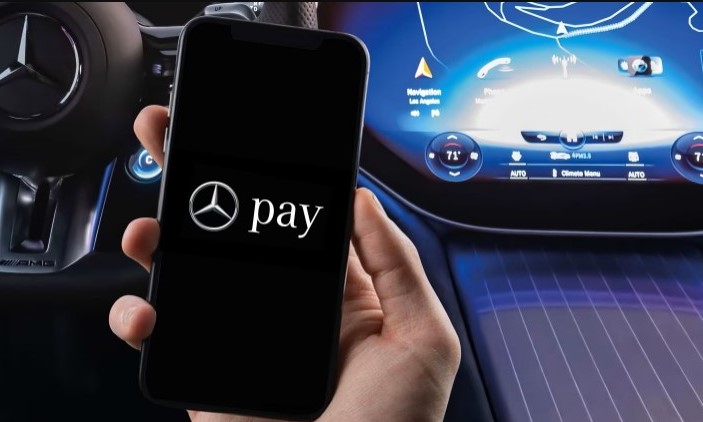Connected Cars Promise US Drivers Convenience, Payments Efficiency This Holiday

But the in-car payment infrastructure that is transforming the driving experience and making transport more efficient is not limited to driving alone.
Earlier this month, Mercedes-Benz Financial Services USA announced the launch of an in-car payment feature to enable drivers to identify and reserve a parking space at available off-street parking facilities via Mercedes-Benz User Experience (MBUX), the company’s advanced multimedia infotainment system. The service, powered by Mercedes pay and available on any Mercedes-Benz vehicle in the U.S., is likely to come in handy as parking restrictions are enforced around the country this holiday.
In March, PYMNTS’ Karen Webster and Mercedes pay CEO Nico Kersten discussed the launch of the carmaker’s in-car payment service, Mercedes pay+, designed to allow customers to pay for digital services and upgrades via a fingerprint sensor in the car.
According to Kersten, Mercedes-Benz envisions payments rooted at the very beginning of the customer’s journey, where the driver’s identity is tied to the car as they transact and interact with a broad range of digital services, starting from the car itself, to a broader ecosystem across a range of providers.
“With this ID you also have a payment profile. There’s always a connection between the vehicle, the hardware, and the person — whether it’s the driver or a ‘co-driver,’” he said.
Authentication, he added, is done through a fingerprint sensor mounted in the car, while data is collected and stored securely through Visa’s Delegated Authentication and Visa Cloud Token Framework technology.
And it’s not just Mercedes-Benz vying for a slice of the growing pie. As 5G mobile technology matures, the automotive industry is beginning to embrace digital payment infrastructure to cater to the growing number of connected cars on the road.
In February of this year, Car IQ raised $15 million to link vehicles to purchases without a payment card. Prior to that in 2021, J.P. Morgan acquired 75% of Volkswagen Payments, while General Motors announced that growing revenues from in-car connected services subscriptions will be a big part of the company’s plan to double its revenues. Last December, BMW also announced a partnership with Parkopedia for in-vehicle parking payments.
In another recently announced pilot program, Mercedes and Microsoft have teamed up to expand on the former’s use of in-car artificial intelligence (AI). For over three weeks now, beginning on June 16, the carmaker has been beta testing an integration of the ChatGPT generative AI function with its MBUX Voice Assistant in more than 900,000 vehicles.
“ChatGPT complements the existing intuitive voice control via Hey Mercedes,” the company said in a press release. “While most voice assistants are limited to predefined tasks and responses, ChatGPT leverages a large language model to greatly improve natural language understanding and expand the topics to which it can respond.”
As PYMNTS reported, the Mercedes/Microsoft deal follows a collaboration between the automaker and Google which was announced earlier this year and enables drivers to access information such as hours, ratings and reviews for more than 200 million businesses via Google’s Place Details function.